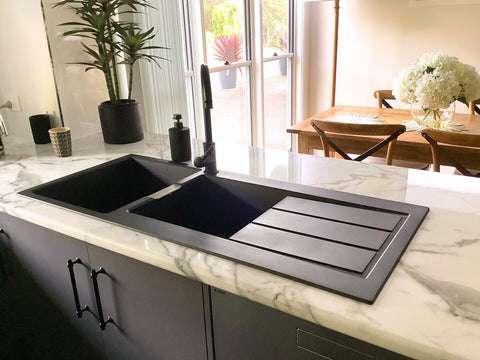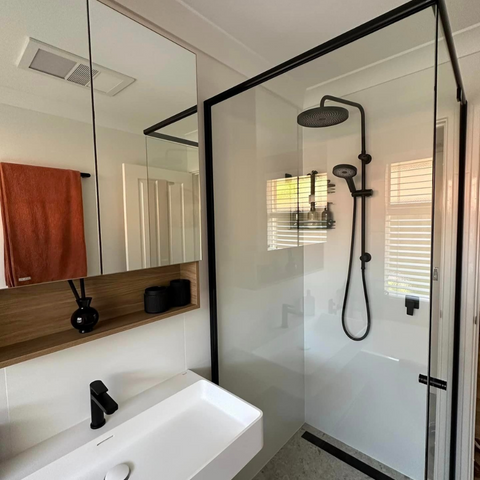In Australia, the rules can vary from state to state regarding whether you can install a kitchen, bathroom, outdoor tap, or shower and perform general plumbing activities without being a licensed plumber.
In this article, we outline each state's regulations but advise you to conduct your own research using the links provided before performing any DIY activities.
States covered are:
Click to view our range of easy to install Kitchen Taps
Western Australia
New plumbing regulations in Western Australia, including Perth, via the Department of Energy, Mines, Industry Regulation and Safety (DMIRS), have come into effect in 2024. These regulations confirm that certain plumbing tasks can be legally undertaken without being a qualified plumber. These tasks are limited to:
- Maintenance, repair, or replacement of a shower head
- Maintenance or repair of a tap (other than a thermostatic mixing tap)
- Replacement of a cistern washer
- Replacement of a water filter cartridge
- Clearing a blocked fixture or waste pipe using a plunger
The regulations do not permit the replacement of kitchen or bathroom taps without the use of a licensed plumber. If in doubt, consult with the regulator on plumbing-related matters at 1300 489 099.
Key References:
- DMIRS – Homeowners Plumbing Regulations
- DMIRS – Licensed Plumbers Register
- DMIRS – Contact Number 1300 489 099
Victoria
The Victorian Building Authority (VBA) regulates plumbing trades and plumbing works within Victoria and Melbourne. Victoria has strict regulations for plumbing activities, and it is illegal to perform any work beyond changing a shower head or replacing tap washers without being a licensed plumbing practitioner.
To replace a kitchen or bathroom tap, you must engage a licensed plumber. The following guide provides advice on how to engage a licensed plumber in Victoria, and you can validate the plumber's license by searching the VBA plumber register.
Information on requirements and regulations can be found at VBA Plumbing or by contacting VBA at 1300 815 127.
Key References:
- VBA – Plumbing Requirements Victoria
- VBA – How to Engage a Plumber in Victoria
- VBA – Licensed Plumbers Register
- VBA – Contact Number 1300 815 127
New South Wales
Fair Trading regulates plumbing within New South Wales and Sydney and sets out the state's plumbing standards. NSW law only permits fully licensed plumbers to undertake plumbing and drainage works, with some limited exceptions that can be performed by a handyman or as a DIY activity. Here is a list of plumbing tasks you are allowed to perform yourself:
- Replace a shower head
- A water valve or tap downstream from an irrigation system
- Replacement of tap washers
- Sanitary drain cover replacements
- Clean and maintain grates on ground-level drains
- Plunge or snake the drains as necessary to clear them
The regulations specifically require licensed plumbers to carry out the installation of drinking water systems, which includes kitchen taps.
NSW Fair Trading Building Code and Advisory Phone: (02) 9372 9271. Sydney Water provides a plumbing service via their Sydney Waterfix Service, with transparent published rates. For example, changing a kitchen tap is quoted at $220 plus a callout fee of $44, which is reasonable for a licensed professional.
Key References:
- NSW Fair Trading – Plumbing Regulations
- NSW – Sydney Water Plumbing Service
- NSW – Licensed Plumber Register
- NSW Fair Trading – Contact Number (02) 9372 9271
Queensland
Many plumbing activities in Queensland are regulated and require a licensed plumber. However, there are limited works that are considered unregulated and can be done by yourself or a plumber, including:
- Replacing a shower head or domestic water filter cartridge
- Replacing a jumper valve or washer in a tap
- Repairing or replacing a drop valve washer, float valve washer, or suction cup rubber in a toilet cistern
- Replacing caps on ground-level inspection openings on a sanitary drain
Key References:
• QBCC – DIY Plumbing Guide
• QBCC – Plumbing Work
• QBCC – Regulated Plumbing Work Requirements Queensland
• QBCC – Licensed Plumbers Register
• QBCC – Contact Number 139 333
Other considerations before undertaking any plumbing work include the impact on your house and contents insurance, product warranties that may require professional installation, and any local council requirements.
In summary, while you can usually install a tap without being a licensed plumber, you should ensure that you follow state and local regulations, adhere to plumbing standards, and consider the impact on warranties and insurance. If in doubt, consulting or hiring a licensed plumber might be the safest choice.




